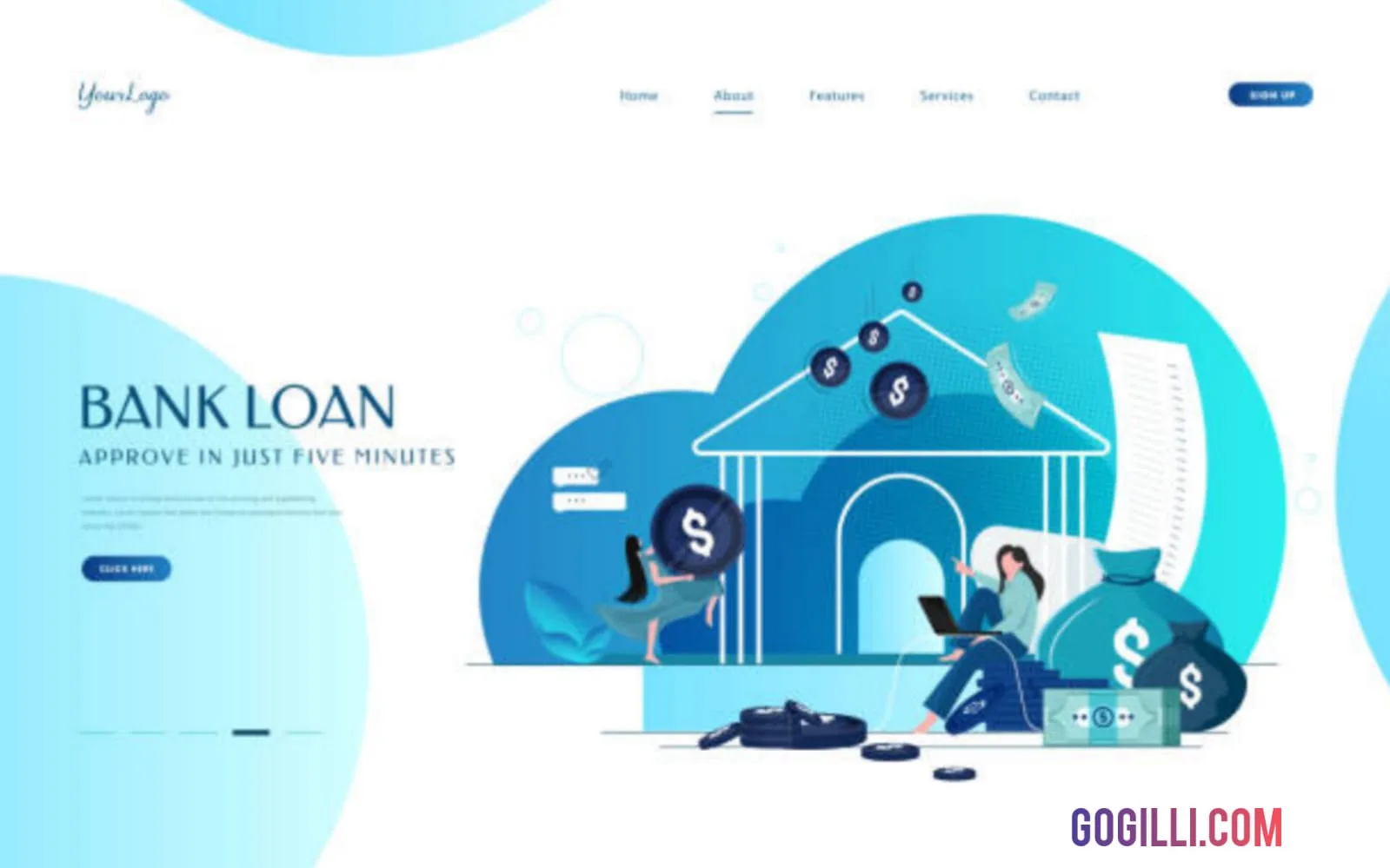Getting a small business loan can be a critical first step in igniting your entrepreneurial passion and accelerating the growth of your enterprise. However getting a loan can be a difficult procedure, particularly for new business owners. To assist you in successfully navigating this procedure.
Uncover the keys to securing a small business loan, and make your aspirations financially viable. With thorough advice and professional direction, you may overcome obstacles and open up a world of commercial potential.
Take advantage of the best small business loan option and embark on the exciting journey towards financial freedom. Learn how to get funding for your company quickly and efficiently, and start down a profitable route to success. Act right now.
What is a small business loan & How To boost your credit:
Small and medium-sized businesses (SMBs) can use small business loans as a specific kind of finance to help them achieve their funding needs. There are several uses for these loans, including:
Launching or growing a business: business loans might supply the money required to buy supplies, stock, or real estate, or to recruit more employees.
Operating costs: Payroll, rent, and utility bills are just a few of the regular expenses that can be covered by small company loans.
Financing major expenditures: You can utilize small company loans to finance big purchases like new cars or equipment. A variety of small company loan options are available, each with specific terms and restrictions.
The following are the most typical kinds of small business loans:
The most typical kind of loan for a small company is a term loan. Both the interest rate and the repayment period are set in stone.
Credit lines: These loans give you access to a credit line that is always available for use. Their interest rate is usually changeable.
Financing for equipment: This type of loan is intended especially to cover the cost of buying equipment. Usually, they have a set payback period and interest rate.
SBA loans: The Small Business Administration (SBA) guarantees these loans. Compared to non-SBA loans, they often feature longer payback terms and cheaper interest rates.

The prerequisites for small company loans differ based on the lending institution. Nonetheless, the majority of lenders will demand that borrowers possess both a strong credit record and a workable business plan.
The following are some advantages of getting a loan for your small business:
Capital Access: Small business loans can give companies the money they need to develop and flourish.
Enhanced cash flow: By giving companies access to operating capital, small company loans can help them enhance their cash flow.
Repayment options that are flexible: Small business loans usually come with flexible repayment alternatives, which can help enterprises afford them.
Reduced interest rates: Compared to non-SBA loans, SBA loans often have lower interest rates.
If you’re thinking about getting a business loan, it’s crucial to research and contrast various lenders. It is advisable to thoroughly examine the terms and conditions of any loan before accepting it.

Determine Your Eligibility to take the loan from the
bank for small business
You will have to give a bank information about your financial status in order for the bank to decide whether you qualify for a loan. Your creditworthiness will be evaluated using this information to see if you represent a good risk for a bank loan.

When evaluating your eligibility for a small business loan, banks will take into account the following factors:
Credit history: A record of your previous borrowing and repayment practices is called your credit history. In order to determine whether you have a history of making on-time debt repayments, lenders will review your credit history. Having a clean credit record will improve your chances of getting a loan approved.
Income and debt-to-income ratio: In order to assess your ability to repay the loan, lenders will also consider your income and debt-to-income ratio. The portion of your gross monthly income that is allocated to debt repayment is known as your debt-to-income ratio. Having a high debt-to-income ratio will make loan approval more challenging.
Employment: When evaluating your small business loan eligibility, lenders will also take your employment history into account. They’ll want to know that you make a nice living from steady employment.
An asset that you commit to the lender in exchange for a small business loan is known as collateral. The collateral may be seized by the lender if you are unable to repay the loan.
Although it’s not always necessary, collateral might increase your chances of having your loan application accepted.
When evaluating your eligibility for a small business loan, banks may also take into account additional characteristics, such as your age, citizenship status, and marital status, in addition to the ones mentioned above.
You can chat with a loan officer at a bank or credit union if you’re unsure if you qualify for a loan. They can assist you in evaluating your creditworthiness and figuring out if you qualify for a loan.
Determine Your Needs for Loan Funding to start a small business loan.
Finding the small business loan funding you need is an essential first step in getting the money you need to accomplish your objectives. Whether you’re financing personal spending, growing an existing business, or launching a new one, knowing your unique needs will help you select the best loan type and make wise borrowing decisions.
Here’s how to figure out how much money you need for a loan, step-by-step:
Determine the loan’s purpose: Clearly state why you need the loan cash. Are you trying to finance a personal project, expand your inventory, pay off debt, or buy equipment? Finding the best loan alternatives will be made easier if you have a clear goal in mind.
Determine the required amount: Find out exactly how much money you need to accomplish your objectives. To precisely evaluate the costs required, this may entail budgeting, professional consultation, and study
Think about the payback duration: Evaluate your financial status and ascertain how long you can comfortably repay the loan. In general, longer repayment terms lead to lower monthly payments but greater total interest expenses.
Assess your creditworthiness: The interest rates and small business loan conditions you are eligible for are mostly determined by your credit score. Examine your credit report, and if required, take action to raise your credit score.
Examine your alternatives for loans: Examine several loan options, including government-backed loans, home equity loans, company loans, and personal loans. To determine which is the best deal, compare interest rates, costs, and payback schedules.
Consult an expert: If you’re having trouble navigating the loan application procedure, think about speaking with a financial advisor or loan specialist who can offer you individualized counsel.
You can make well-informed selections regarding the loan funding you require and obtain the funds you require to effectively accomplish your objectives by carefully weighing these variables.
Create a Business Plan
Here is a strong business plan
- Problem: Address a glaringly obvious and important market need or problem.
- Solution: Provide a special and original response to the noted issue.
- Target Market: Clearly state who your product or service is aimed towards.
- Determine: how your company will make money by creating a revenue model.
- Team: Put together a group of people with the knowledge and expertise needed to carry out your plan.
- Financials: Make accurate financial estimates that show the sustainability of your company.
Apply for loan application
In order to submit an application for a business loan, the following details must be supplied:
- Personal Information:
- Your full name:
- Your date of birth:
- Your SSN (National Insurance):
- Your phone number and email address to communicate:
- The address of your home:

Business Information:
- Your business name:
- Your kind of business:
- Your corporate address:
- Your tax ID number for business:
- Your company’s annual revenue:

The financial statements for your company (income statement, cash flow statement, balance sheet)
Your business’s plan
- Additional Documentation
- Your last two years’ personal tax returns
- Your last two years’ worth of business tax returns
- Your last six months’ worth of bank statements
- Any security you might provide
You can apply for a small business loan online, in person, or by mail once you have acquired all the necessary data. The method of applying will change based on the lender you select.
The following advice can help you apply for a small business loan:
- To discover the best rates and terms, shop around and compare lenders.
- Make sure you have a solid business plan that details the objectives, tactics, and projected financials of your organization.
- Prepare the supporting papers you’ll need to submit your application.
- Provide full and honest answers to all of the questions.
- The application procedure may require some time, so be patient.
- Monthly loan payments are what you would be expected to make if you are granted a business loan. Your credit score, the lender, and the loan terms will all affect the interest rate on your loan.
Approach the Lender Personally for the loan approval
A good strategy to improve your chances of getting your loan accepted is to speak with the lender in person. Here are some pointers on executing it:
Before you meet with the lender:
Do some research. Verify that you are aware of the lender’s standards and what you must bring to the appointment.
Get your papers ready. assemble all required paperwork, including your tax returns, pay stubs, and bank statements.
Get your pitch ready. Prepare an explanation of your need for the loan and your ability to repay it.
During the meeting:
- Don’t have a business outfit. Present yourself professionally to make a good first impression.
- Be prompt. Make sure you arrive punctually for your appointment and be ready to wait if needed.
- Be considerate and courteous. Treat the lender and its employees with courtesy and respect.
- Be succinct and clear. Give a succinct, unambiguous explanation of your needs.
- Be forthright and truthful. Tell the truth about where you stand financially.
- Make inquiries. Inquire about the requirements of the lender and the loan application process.
- Proceed with. Following the meeting, write the lender a note of appreciation.
Additional recommendation:
- Make sure to highlight your good credit score if you have one.
- Please describe any collateral you have.
- Make sure you bring your co-signer to the meeting if you have one.
- Ask the lender for advice if you are unsure of what to say.
- One effective strategy for getting your loan accepted is to speak with the lender face-to-face. Your chances of success can be raised by heeding these guidelines.
Assessing Loan Proposals
A comprehensive examination of the borrower’s creditworthiness, financial circumstances, and intended use of cash is required when evaluating loan requests. The borrower’s credit history, income, debt-to-income ratio, and collateral are all taken into account by lenders.
Figuring out if the borrower is a good risk and whether the loan is likely to be repaid are the two main objectives of evaluating loan offers. When deciding whether to approve or reject loan applications, lenders utilize this information to make well-informed decisions.
Examine the terms of the loan agreement for small businesses.
Terms of the Small Business Loan Agreement
Loan Amount: The sum of money that the business will get from the bank.
Repayment Terms: The time frame within which the company must return the loan as well as the installment plan.
Interest Rate: This is the annual percentage rate of the loan amount that the company will pay in interest.
Collateral: Resources that the company could have to give up in order to get a loan.
Covenants: Declarations that the company makes to the bank, including upholding specific ratios in its finances or submitting financial statements on a regular basis.
Default: The circumstances under which the bank will be entitled to declare the loan in default and pursue collection of the outstanding balance.
Effective Loan Monitoring
- Small businesses need to monitor their loans well in order to prevent defaults and maintain financial stability. The following are some essential tactics for efficient loan monitoring:
- Clearly state the loan amount, interest rate, payback timetable, and any collateral requirements in the establishment of the loan terms and conditions. Businesses are better able to comprehend their responsibilities and handle their finances thanks to this transparency.
- Review Financial Statements Frequently: Examine the balance sheets, income statements, and cash flow statements of the company on a regular basis. Find any patterns, irregularities, or places that need attention, and take quick action.
- Track Loan Payments and Arrears: Keep a careful eye on loan payments to make sure they are made on time. Early on, note any late or missed payments, and collaborate with the company to create a corrective action plan.
tip:Keep Lines of Communication Open. Stay in regular, open contact with the business owner to discuss loan performance, resolve issues, and offer assistance as required.
